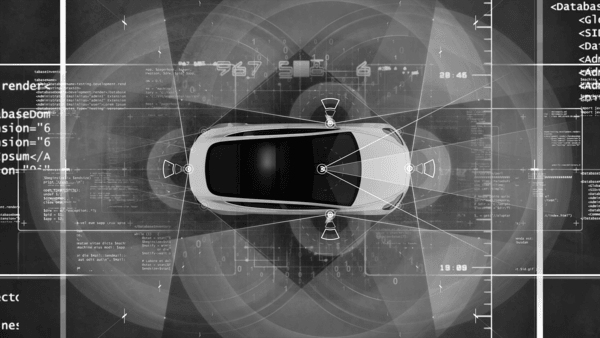
Which Data Center Skills Are in Demand Today?
July 7, 2020
Autonomous Cars as a New Generation of Data Center Requirements
July 16, 2020These days, there’s a lot of talk about things going back to normal. Of course, the ‘normal’ here refers to the world before coronavirus. The world with bustling streets, jam-packed stadiums and crowded malls. A world where a handshake is not a potential death sentence.
Indeed, once there’s a vaccine, things get under control and there’s no need for people to be socially distant —we will eventually see the world function as it did previously. But looking at things from a historic perspective, pandemics do change the world significantly.
Frank M. Snowden, who’s a professor emeritus of history and the history of medicine at Yale explains this phenomenon in his book “Epidemics and Society: From the Black Death to the Present”. The book explains how disease outbreaks have thwarted revolutions, reshaped politics, and increased racial and economic discrimination.

In short, a different world goes into the pandemic and a completely different one emerges from it.
The Post-Corona World: 6 Big Changes
Like all the pandemics that came before it, coronavirus will bring forth many changes in human society. From arts to politics, the pandemic will leave its mark on everything.
However, IT would be the first to experience radical changes as the world reshapes after the COVID-19 pandemic. Here are some predictions on how technology will evolve after the current crisis is over.
Public Monitoring through Big Data Will Increase
Data has played a crucial role in the pandemic. Whether it’s examining the curve or enforcing social distancing protocols, governments have relied on the latest figures to strategize their every move.
South Korea used big data for smart contact tracing and was extremely successful in curtailing the spread of the virus. The country provides a model on how the world can collectively deal with pandemics in the future using big data.
To stop a virus in the early stages, apps could be designed to report and track anyone who’s showing symptoms of a disease. After this, GPS data can help determine how many people were exposed to the disease and how many others they interacted with.
However, there will be issues related to individual privacy and abuse of data whenever governments adopt these policies. There are already concerns about authoritative states and private institutions exploiting the current environment for mass surveillance. This issue will only heat up as mechanisms are created to monitor the masses.
Shopping Moves Online
In the pre-pandemic world, only 4% of Americans ordered groceries online. But in the second week of March, the demand for online groceries soared as many local stores had run out of essential items. Retailers selling groceries online had to work overtime to address this new spike in demand.
This will have a long-term impact. Consumers satisfied with their online grocery shopping would take a liking to this new option. Meanwhile, retailers that previously invested little resources into their online operations would approach eCommerce differently. This will drive them to invest in their logistics and delivery systems as they’d be wary of changing customer preferences and the possibility of any future pandemic.
Remote Working Goes Mainstream

One of the biggest effects of coronavirus has been an increase in the number of people working from home. An MIT survey of 25,000 American employees discovered that 34% of workers who had been employed four weeks earlier were currently working from home. Combined with this, 15% claimed they had been working remotely since before COVID-19.
Based on this data, nearly half of America’s workforce now consists of remote workers and this includes individuals 55 and older. Of course, many companies will prefer to have their staff in the office but some organizations might have gained a new perspective on remote work.
Google and Facebook have extended their work from home options to 2021. These tech giants will inspire many other industry players to be laxer with their remote work policies and in doing so, they will discover the benefits of not letting physical barriers dictate the talent their company can acquire.
It may be the case that many businesses will find the presence of an office unnecessary in a post-coronavirus world.
Cloud Becomes Critical to Businesses
The ever-expanding remote workforce would need a cloud infrastructure with supreme capacity. This is where hyperscale vendors such as Microsoft Azure, Oracle Cloud, Amazon Web Services, IBM Cloud, and Alibaba Cloud would come in. Remote desktop technologies will become critical as millions work from home.
In particular, there will be a great demand for containerized remote Windows desktop, and hyperscale cloud providers would seek to capitalize on this opportunity. Microsoft might accelerate Windows 10X development for Azure and Azure Stack instead of endpoint device use.
It wouldn’t be surprising Mac or iOS apps in the cloud are developed using large ARM clusters. This can be expected whenever Mac and iOS are re-architected. Interestingly, this will require a partnership of Apple with Microsoft or IBM which most definitely is a possibility in the unpredictable year of 2020.
Automation and Robotics Will Dominate

Many experts are pinning their hopes on Artificial Intelligence (AI) and Robotics in the battle against coronavirus. Their expectations for this technology are not misplaced. Robots are not affected by pandemics and any system required to govern them only needs minimal human intervention in most cases.
Of course, automation inside businesses was taking place long before the first patient was infected with coronavirus in Wuhan, China. Companies were already investing in software that could automate their HR, finance, and marketing functions.
However, it wouldn’t be surprising if businesses, big and small, waste little time in implementing systems that automate their day-to-day tasks once this is all over.. Factories that have seen production halted due to coronavirus might be the first to adopt AI in order to avoid any future disruptions.
Stress Testing Will Become a Regular Procedure
Stress testing has been around for a long time and IT service providers have routinely tested business systems that are categorized as critical for a company to function. But one can safely assume that VPN systems and remote access solutions have never been a part of this process.
Since a large portion of employees never used these technologies, they weren’t deemed critical and therefore, were not tested. But COVID-19 pandemic has changed this perception and companies now realize that these technologies are essential in crisis situations.
Going by this, one can predict that network-wide stress will be a standard operating procedure in the post-coronavirus world. It would be necessary to ensure WAN-side services are able to manage an absolute traffic reversal that is being caused by the current circumstances. With the possibility of another pandemic, IT professionals wouldn’t be willing to take any unnecessary risks.
The world is currently experiencing a crisis that is unprecedented in modern times. While the pandemic will change life from here on out, one can hope that all these changes will be for the better.
